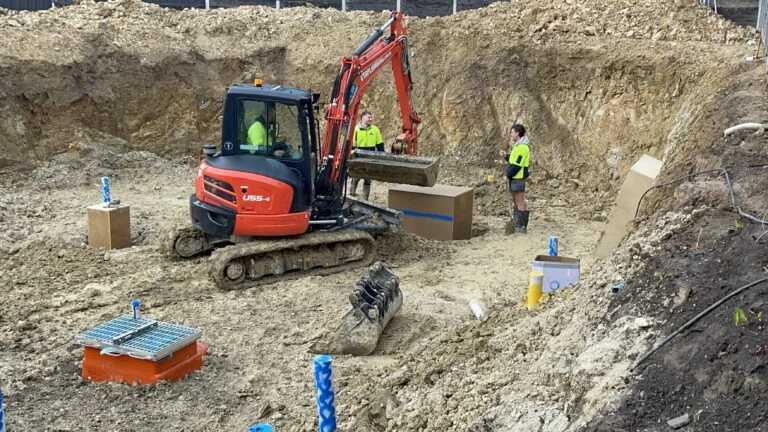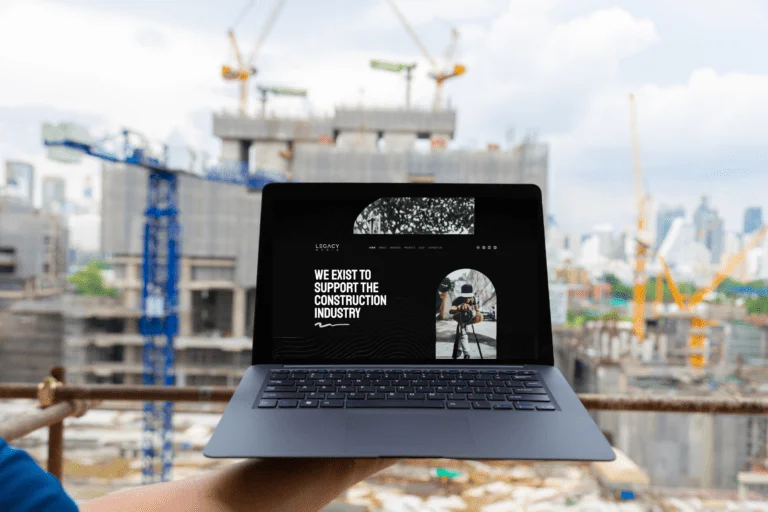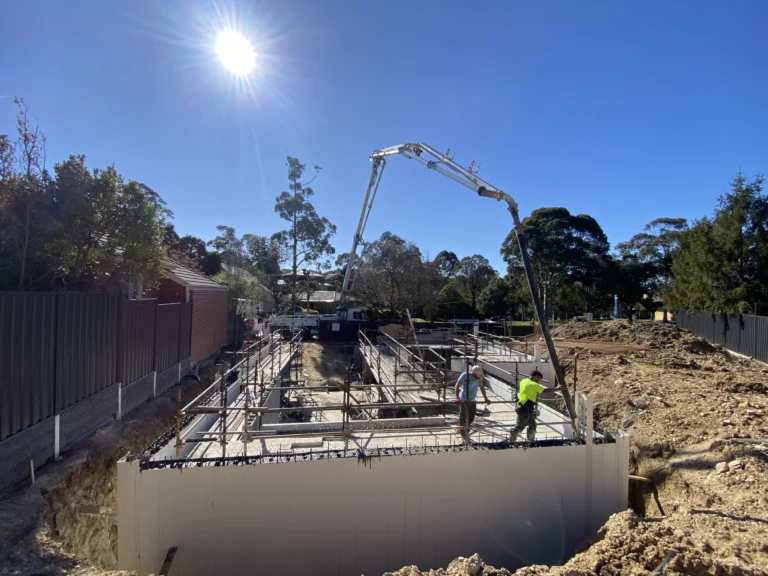Want smarter marketing? Join our FREE community — built for people working in construction

How BIM Content Can Elevate Your Construction Marketing Strategy
In today’s crowded market, construction firms that present complex work clearly and prove it win the shortlist. Building Information Modeling (BIM) gives you the raw material to do exactly that: interactive, data-rich assets that turn projects into stories clients can understand and trust.
What Is BIM Content and Why It Matters
BIM content includes 3D models, parametric objects (e.g., Revit families), specifications, construction sequences, and documentation produced during design and delivery. Unlike 2D drawings, these assets are interactive and information-rich, making it easier for owners, architects, and builders to grasp scope, methods and risk.
As BIM adoption grows across residential, commercial and infrastructure projects, firms that surface this content in their marketing demonstrate technical depth, coordination capability and modern delivery key proof points for developers and councils evaluating tenders in Melbourne and Australia-wide.
The Marketing Power of Visual Storytelling
- Virtual walkthroughs & fly-throughs
Let prospects explore spaces, finishes and building systems from concept to practical completion.
- Sequence & methodology animations
Use 4D scheduling clips to show staging, logistics and safety planning.
- Systems deep dives
Toggle layers to reveal HVAC, electrical and structural coordination; highlight clash detection results and resolutions.
- Before/after & options
Compare value-engineering alternatives with cost/schedule impacts (link to 5D cost estimating where relevant).
Ready to Grow Your Construction Business?
Discover proven marketing strategies tailored for Australian construction companies. Start attracting more clients today.
Building Trust Through Transparency
BIM lets you show your homework: model coordination, issue tracking, RFIs, as-built models, and scan to BIM verification from point clouds. Publishing selected views, GIFs, and snippets (with client approval) signals quality control, collaboration and traceability credibility factors buyers look for when shortlisting.
Differentiate on Capability, Not Just Price
Use targeted BIM showcases to position sector expertise:
| Sector | What to Showcase (BIM) | Example Assets / Notes |
| Health & education | Infection-control zones; services congestion planning; prefabricated racks | 4D zone lockdown/staging clips; coordination snapshots; prefab rack drawings/photos |
| Industrial | Process lines; digital twins for operations & FM | Linked P&IDs/model views; asset tags; FM handover demo |
| Residential & mixed-use | Apartment MEP coordination; facade details; defect tracking | Clash reports; annotated facade sections; punch-list dashboards |
| Civils | Staging around traffic management; utilities relocation | 4D traffic staging animation; utility clash maps; phasing diagrams |
This moves you out of the commodity bucket and into value-based selection.

How BIM Supercharges Digital Channels
Website (UX & SEO)
Embed lightweight model viewers, short clips, and annotated screenshots on project pages; add transcripts/captions for accessibility. Internal-link these assets to relevant service pages and location pages (e.g., “metal fabrication in Melbourne”).
Search visibility
Rich media improves engagement signals; structured data (Organization, LocalBusiness, Project, VideoObject) helps discovery.
Social media
Short vertical walk-throughs perform strongly on LinkedIn, Instagram and YouTube Shorts; post “problem → solution” sequences with on-screen annotations.
Email & nurture
GIFs and 20–40-second clips lift click-through rates in capability updates and EOI packs.
Streamlining Sales Conversations
Armed with curated model views and sequences, your team can answer scope, staging and risk questions on the spot on site, in Teams/Zoom, or at a client boardroom. Prospects come to contract talks better informed, which shortens cycles and reduces surprises.
Creating Stand-Out Case Studies (What to Include)
- Project overview: client, sector, location, contract form.
- Objectives & constraints: time, budget, site access, stakeholder complexity.
- BIM scope: LOD/LOI, platforms (Revit/Navisworks/etc.), clash detection cadence, coordination workflow.
- Visuals: 30–60s sequence animation, two “system reveal” clips, and one annotated still set.
- Outcomes: variations avoided, clashes resolved pre-site, schedule savings, defect reductions.
- Lessons learned: what will repeatably benefit the next client.

Implementation Playbook
- Select hero projects with clear, visual wins (e.g., prefabrication, complex services).
- Curate, don’t dump: Export lightweight web assets (e.g., IFC, glTF, USDZ for AR) and compress videos for fast loads.
- Create a content set per project: 1 hero video, 2–3 GIFs, 6–10 annotated stills, 1 methodology diagram.
- Accessibility first: Alt text, captions, transcripts, readable contrast, and mobile-first pages.
- Governance: Client permissions, IP, confidentiality boundaries; nameplates removed if required.
- Performance: Optimise Core Web Vitals; serve media via CDN; lazy-load embeds.
- Measurement: Track plays, scroll depth, form starts, file downloads; attribute to project and channel.
Measuring Success (Measurement Plan & KPIs)
| Area | Primary KPIs | Diagnostic Metrics | How to Measure | Notes |
| Engagement | Time on page, Scroll depth %, Video completion rate, Model interactions | Avg. session duration, Pages/session, Exit rate, Play rate | GA4 (Engagement time, Events), video player stats, interaction events via GTM | Tag key events: video_start, video_complete, model_interaction, scroll_90. |
| Acquisition | Organic sessions to project/service pages | Queries/Impressions/CTR for terms like BIM modeling Melbourne, Revit families, clash detection services | Google Search Console (Queries & Pages), GA4 Traffic acquisition | Map landing pages to topics; monitor query movement weekly. |
| Leads & revenue | Qualified enquiries, Tender invites, Win rate, Margin uplift on “BIM-led” deals | Form starts → submits, Call leads, Lead quality score | GA4 conversions, Call tracking, CRM pipeline reports | Define “qualified” in CRM; track source/medium and project value. |
| Content velocity | Projects published per quarter | Refresh cadence (updates per page/quarter) | CMS/Editorial tracker, GA4 content groups | Aim for steady cadence vs. bursts; log updates for E-E-A-T signals. |
Helpful formulas (use in your sheet):
- Lead conversion rate = Leads / Sessions
- Win rate = Deals won / Qualified deals
- Video completion rate = Video completes / Video starts
- Organic CTR = Clicks / Impressions
- Content refresh rate = # pages updated this quarter / # total pages
BIM & Construction Marketing FAQs
What is BIM content in construction?
Digital assets models, specs and sequences used to plan and communicate design and delivery.
How can BIM help win work?
It de-risks decisions by showing coordination, staging and cost impacts clearly, which tender panels reward.
What BIM formats work best on websites?
Compressed MP4/WebM clips, annotated PNG/JPG stills, and web-friendly model formats like IFC/glTF; host heavy files off-page.
Is BIM only for large projects?
No townhouses, schools, health refurbishments and fit-outs benefit from clash-free services and clearer stakeholder comms.
How BIM Content Shortens Sales Cycles for Builders
BIM content turns complex builds into clear proof. Showcasing BIM modeling, clash detection, 4D scheduling, scan to BIM, and digital twin visuals as short videos, walkthroughs, and annotated stills helps prospects in Melbourne and across Australia grasp scope, risk, and value faster lifting engagement, strengthening SEO for construction, and shortening sales cycles.
Legacy Media specialises in construction marketing, construction website design, marketing for builders, and construction web design turning your Revit families into high-performing case studies with practical construction industry marketing.



